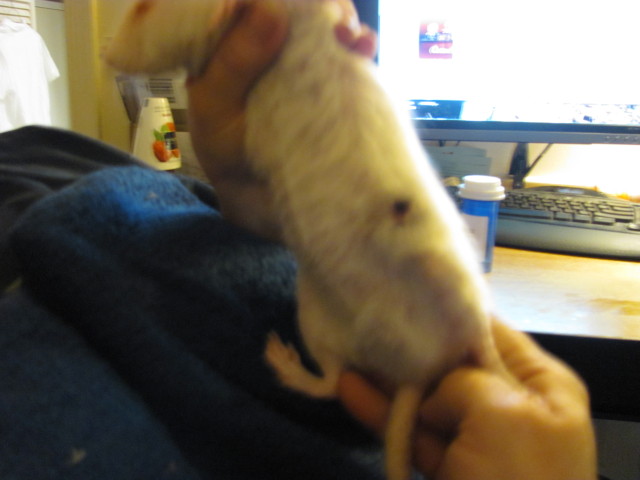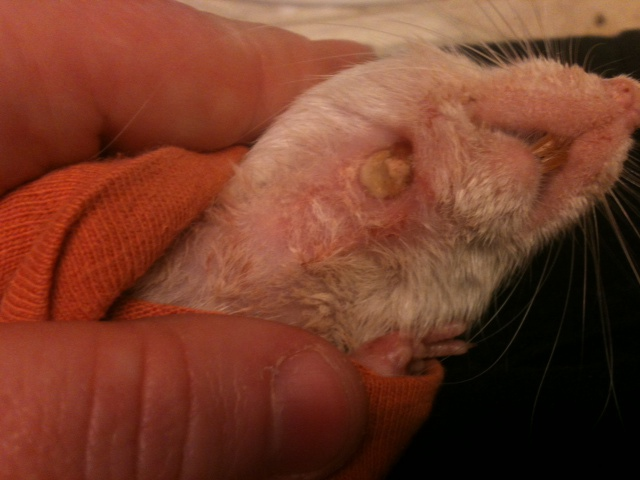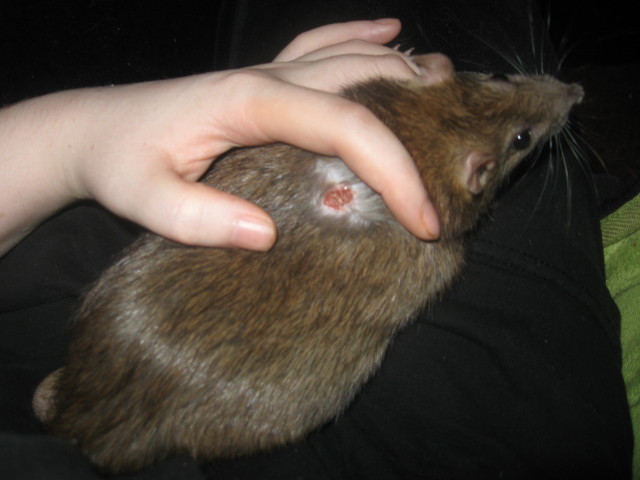QuestionHi Sandra,
The following email was sent to me at work. Could you tell me if this is true. Thanks, Heidi
_________________________________________
This is Serious!
This incident happened recently in Nort h Texas .
A woman went boating one Sunday taking with her some cans of coke which she put into the refrigerator of the boat. On Monday she was taken to the hospital and placed in the Intensive Care Unit. She died on Wednesday.
The autopsy concluded she died of Leptospirosis. This was traced to the can of coke she drank from, not using a glass. Tests showed that the can was infected by dried rat urine and hence the disease Leptospirosis.
Rat urine contains toxic and deathly substances. It is highly recommended to thoroughly wash the upper part of all soda cans before drinking out of them. The cans are typically stocked in warehouses and transported straight to the shops wi thout being cleaned.
A study at NYCU showed that the tops of all soda cans are more contaminated than public toilets (i.e).. Full of germs and bacteria. So wash them with water before putting them to the mouth to avoid any kind of fatal accident.
_____________________________________________
AnswerIts a hoax, relax. Go to the link below or scroll down to bottom of message to read what I copied from the site below. As usual, just a bunch of garbage to scare people and keep rats at the bottom of the totem pole as far as being nasty and disgusting animals!
POOR RATS! They always get blamed for everything! I wont say its not possible but the rats get blamed for everything. Take it with a grain of salt. The woman obviously knows you own pet rats and wants to again prove a point she must feel strongly about: RATS ARE DISEASE INFESTED VERMIN!
Even if it is from a rat, it is from a wild rat that contracted this disease from another source since this is not a disease rats harbor on their own. In fact, good old mans best friend can be to blame for rats getting this since dogs and known carriers of the disease. But do dogs get blamed? Of course not. Maybe a pit bull would get the rap since poor pit bulls also get the blame for every animal bite or animal attack. My sister has pit bull. My rats slap her through the cage when we visit and the dog runs with tail between legs. Some killer dog.
That said, even if it is true, this has nothing to do with our pet rats. When was the last time your rat was out playing in sewage around other wild animals waste?
FROM WEBSITE
http://www.hoax-slayer.com/leptospirosis-soda-can.html
Commentary:
The Leptospirosis Information Center dismisses this emailed warning as fake.
Exposure to urine from infected rats and other animals can indeed cause humans to contract leptospirosis. However, the chances of someone becoming infected in the manner described in this email are extremely slim.
First seen in 2002, these emails are entirely without substance, and have been used to send spam, transport viruses and simply to cause panic. The text of the email varies, but the most common version we've seen in 2005 is as follows:
[Copy of message similar to above example omitted]
The email evolves over time, and currently we are seeing a rise in circulation in the USA, referring to deaths in several states. If you receive one of these messages, please delete it and ignore what it says. You are more at risk of being hit by lightning while riding a camel than contracting leptospirosis from a commercial drinks container
The LIC article also states that:
Leptospira require constant immersion in water to survive, and so drying of the surface for any length of time would permanently kill the bacteria. Given that drinking containers are non-porous, surface moisture dries very quickly and cannot possibly contaminate the contents.
The organisms that cause Leptospirosis can survive outside the body of the original host, but only if favourable environmental conditions are present. An article on the Michigan Department of Natural Resources website notes that:
The bacteria prefer moist, slightly alkaline soil, stagnant ponds, and low-flow, slow-moving, slightly alkaline streams. In these conditions the organism can survive for several weeks.
Given these facts, it is highly improbable that Leptospirosis bacteria could have survived on the surface of the can lids long enough to infect the alleged victim.
Furthermore, the email implies that rat urine is always toxic. According to the message, "rat urine contains toxic and deathly substances". This implication is misleading and inaccurate. Contact with urine from diseased rats can certainly lead to illness in humans. However, this is because the urine carries bacteria associated with a particular illness, not because the urine itself is in some way inherently toxic.
The message also falsely claims that the information is backed up by a "study at NYCU". Apparently, "NYCU" is intended to be an acronym for New York University. However New York University uses the acronym "NYU" rather than "NYCU". In any case, I cannot locate any record of such a study being conducted by NYU. Another, almost identical version of the message (see below) claims that the "study" was conducted in Spain, rather than by the "NYCU".
As is often the case with such emails, the details supplied are extremely vague. The "victim" is not named nor is there any background information such as the name of the treating hospital or even the name of the town or city where the alleged fatality occurred. The message does specify "North Texas" as the region in which the "incident" occurred. However, a European orientated version of the message (see below) claims the incident took place in Belgium. Extensive research reveals no credible information about a death like the one described in the email. If such a death had occurred in the manner outlined, it would have undoubtedly received wide-reaching publicity from the mainstream media.
Given that soda cans may have been stored or handled in an unsanitary manner before they reach consumers, the message's recommendation to wash the top of cans is probably worth heeding. However the spurious and misleading claims in the email should not be taken seriously and the message should not be forwarded.
European version of the hoax:
Subject: FW: Coke anyone?
Charming........
This incident happened recently in Belgium.
A woman went boating one Sunday, taking with her some cans of coke which she put in the refrigerator of the boat. On Monday she was taken into ICU and on Wednesday she died.
The autopsy revealed a certain Leptospirosis caused by the can of coke from which she had drunk straight out of,not using a glass. A test showed that the can was infected by dried rat urine and hence the disease Leptospirosis.
Rat urine contains toxic and deathly substances. It is highly recommended to wash thoroughly the upper part of soda cans before drinking out of them as they have been stocked in warehouses and transported straight to the shops without with being cleaned.
A study in Spain showed that the tops of soda cans are more contaminated then public toilets i.e full of germs and bacteria. So to wash them with water is advised before putting it to the mouth to avoid any kind of fatal accident.

 What is a
QuestionQUESTION: I went to a PETCO near me to look at
What is a
QuestionQUESTION: I went to a PETCO near me to look at
 My poor rat is NOT dying (thanks to you)
QuestionQUESTION: My families precious rat Sugar was di
My poor rat is NOT dying (thanks to you)
QuestionQUESTION: My families precious rat Sugar was di
 I dont know what she has!
QuestionQUESTION: Hello Sandra,
I recently helped take
I dont know what she has!
QuestionQUESTION: Hello Sandra,
I recently helped take
 Swollen tongue knawed, loss of blood, abscess
Question
Lucy1 Lucy2
Hello!
&
Swollen tongue knawed, loss of blood, abscess
Question
Lucy1 Lucy2
Hello!
&
 my colony is a mess and I dont have a caring or expierenced vet
Question
scabby rat
Two months ago I went to the vet fo
my colony is a mess and I dont have a caring or expierenced vet
Question
scabby rat
Two months ago I went to the vet fo